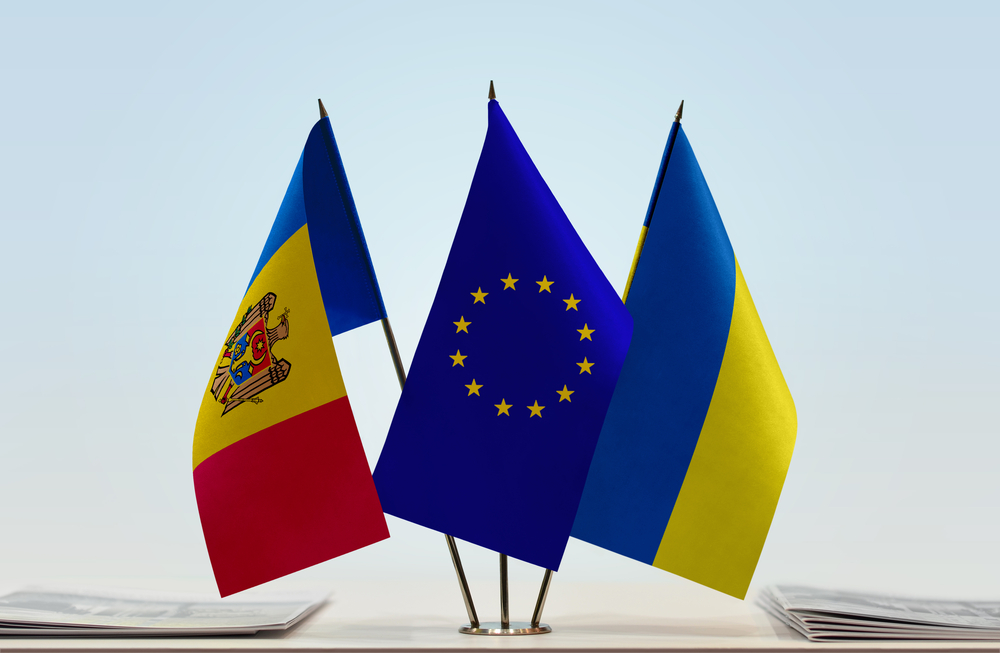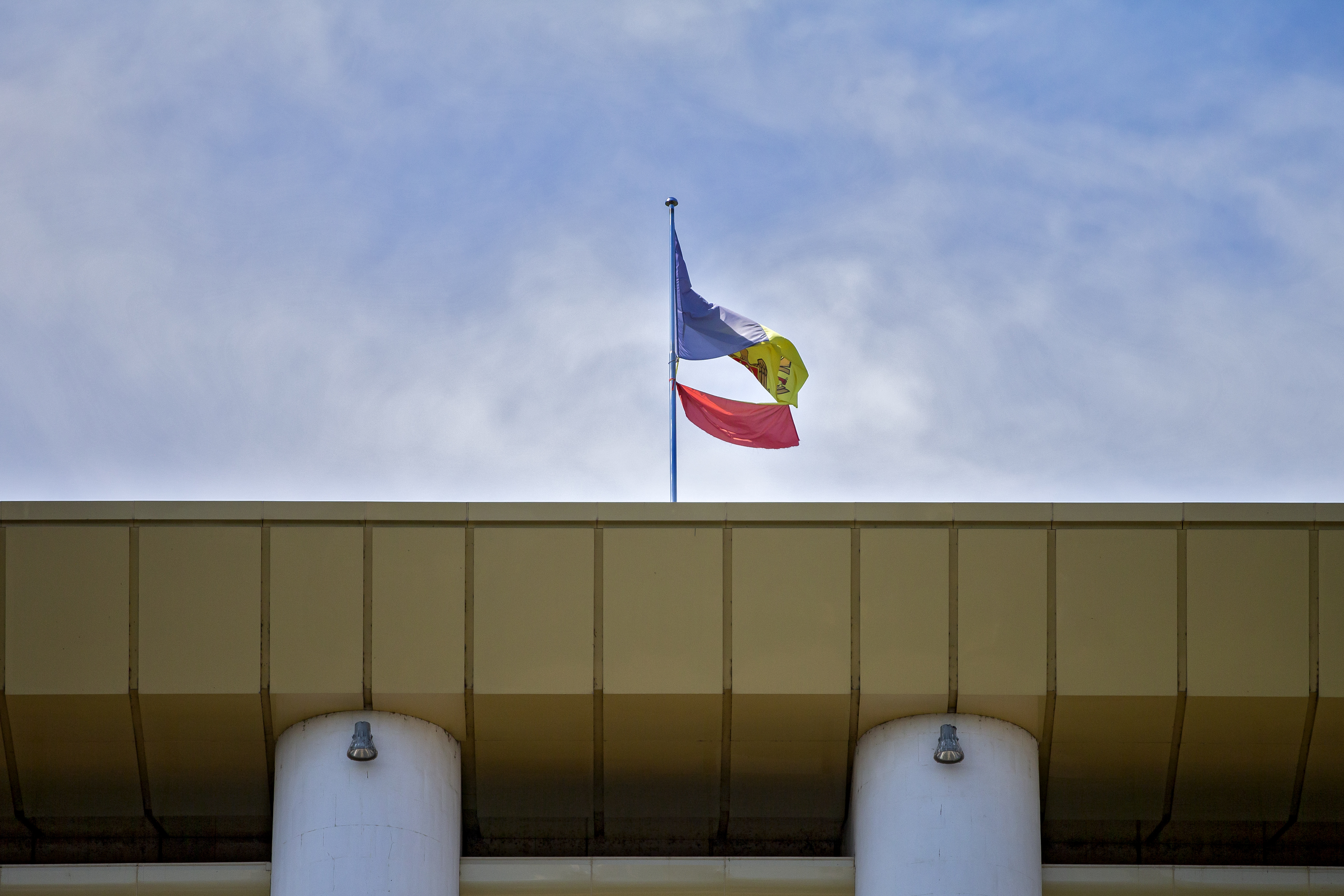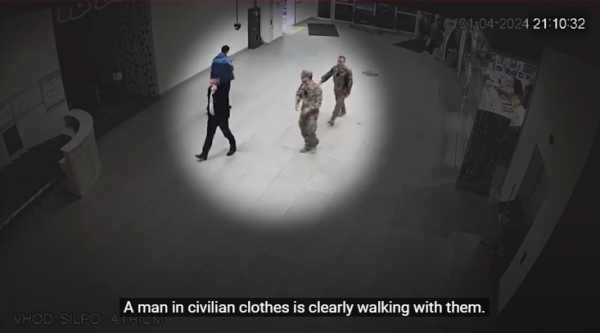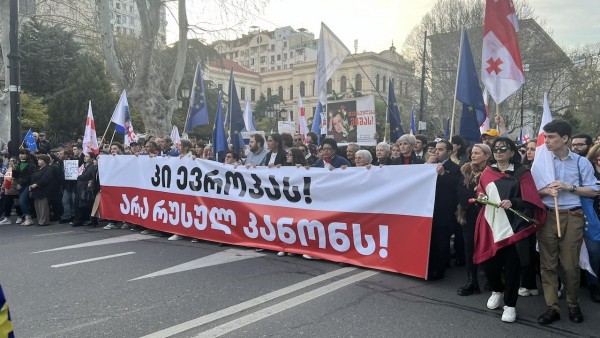Following the election of a pro-EU president in 2020, Moldova’s independent press has grown in strength and significance. However, challenges remain as a result of the country’s political and social instability, its vast levels of corruption, and the ripple effects of the war in Ukraine. Among growing regional tensions, Moldova’s independent press is preparing for an uncertain future.
Moldova, historically a frontier between empires, continues to suffer as a result of its past. Despite gaining independence from the USSR in 1991, its society has been continuously divided between aligning with the west or the former Soviet sphere.
The conflict between these opposing viewpoints led to the tumultuous early years of independence, with the tiny nation being divided between one central government, an autonomous territorial unit, Gagauzia, and a separatist region occupied by Russian forces, Transnistria.
The coming to power of President Maia Sandu’s pro-western government in 2020 brought new hopes for an independent press. However, against the backdrop of the nearby war in Ukraine, growing political and economic uncertainty continues to impede press freedom and pluralism to this day.
Between jingoists, oligarchs, and politicians
Moldova’s press environment, though diverse, remains highly polarized. While the news conglomerates of oligarch and former Democratic Party of Moldova leader Vlad Plahotniuc collapsed after he fled the country in 2019, a new threat soon emerged. Another media empire rose to prominence under the control of the pro-Russian Socialist party (PSRM). Seven notable TV channels, several dozen news portals and Telegram channels, alongside dozens of political commentators, came under the direct or indirect control of the PSRM and its leader, Igor Dodon. Their rhetoric was continuously bolstered by Russian propaganda, exploiting the popularity of the Russian language in Moldova.
Despite an often-hostile environment, independent outlets continued to reveal the corruption of leading officials and fight disinformation. RISE, a leading independent Moldovan investigative outlet, released a notable series of reports discussing the ties between Kremlin and Dodon. Other investigative outlets often used their platforms to expose the opulence and schemes of oligarchs, public officials, and members of the judiciary. The free press has had successes in exposing the root causes of disinformation.
However, the combined efforts of the pro-Kremlin and pro-PSRM media networks continued to undermine popular confidence in state institutions and the very concept of Moldovan independence, making it difficult for independent outlets to gain the trust of the public. Despite domestic and international efforts, low levels of media literacy often rendered many in Moldova susceptible to disinformation campaigns.
“Propaganda is like radiation, it is very hard to contain,” said Vladimir Thorik, the Russian-language editor of RISE, in an interview with IPI. “No matter what you do, you can’t succeed. Propaganda appeals to the ideas of the good old Soviet times and that the West is foreign to Moldovan society. It uses corrupted methods and ideas.”
After 2020, the increasingly hostile rhetoric of the pro-Russian media, both external and internal, continued to sow instability. A 2021 poll by the Institute of Public Politics, a Moldovan civil society organization, found that 90 percent of the inhabitants of Gagauzia got their news from Russian-language media outlets. A total of 62 percent of the respondents expressed their extreme confidence in Russian-language news. These channels were controlled either by the Kremlin or the PSRM.
Russia’s influence remained strong in all territories of the Republic, as Moldova’s governmental institutions were simply not strong enough to counter the barrage of disinformation.
However, the war in Ukraine brought the battle against disinformation into the spotlight.

A new fight
After the full-scale invasion of Ukraine, in an effort to counter the increasingly damaging effects of Kremlin propaganda, the Moldovan parliament effectively banned the broadcast of news, military, political and analytical Russian programmes on June 22. However, even this radical ban was not able to counter the effects of years of disinformation.
“In Gagauzia and Transnistria they air Russian news channels and the Chisinau authorities cannot do anything about it,” said Thorik.
Disinformation continued to spread through the internet. The Socialist-controlled TV channels, while supposedly airing Moldovan news, ignored the war in Ukraine at best and disseminated Kremlin talking points at worst.
“Some media chose to not talk about the war, but talked a lot about refugees, failing to discuss who started the war and how the war was going. It was bizarre,” said Nadine Gogu, the executive director of the leading Moldovan press freedom NGO Center for Independent Journalism (CJI), in an interview with IPI. “A lot of Russian content replaced this, like shows and movies. Once Russian talk shows were banned, even the shows not discussing politics still discussed politics, as the Russians adapted and tried to reach outside Russia.”
Facing a weakened, yet persistent network of disinformation, Moldovan outlets continue to look for new ways to counter disinformation and strengthen their presence. However, the ever-present military threat from Russia via Transnistria and Gagauzia has created a permanent level of uncertainty for all outlets in Moldova.
Adapting to the new reality
The full-scale conflict in Ukraine, at its start, presented an unprecedented challenge to Moldovan outlets. Amidst a drastic increase in work intensity, advertising revenues collapsed, while staffing shortages became more acute.
“The first months were very difficult,” said Gogu. “Advertising revenues fell drastically… a lot of mass media institutions were left without the few revenues that were coming from advertising. Some said that this withdrawal was even selective, advertising was taken from the outlets that were actually reporting about the war, while others who chose to ignore the war or be silent on it continued to receive revenues.”
“The volume of work has grown massively, editors are few and continue to remain in small numbers,” Gogu added. “People continue to be exhausted, working seven days a week as things are changing hour to hour, minute to minute. They do not have the resources to hire people, due to the fall in advertising revenues.”
Despite these hardships, the free press has attempted to adapt to the new reality. Through new international partnerships and methods of financing, as well as long-term education campaigns, many hope to break the media bubble that some Moldovans have found themselves in.
“We started talking more intensively with Ukrainians and Russians,” said Thorik. “We have the Transnistrian problem and many other threats that we did not talk about much before.” Indeed, in cooperation with the independent Ukrainian outlet Slidstvo, RISE published an investigation into the use of Ukrainian passports by leading Transnistrian leaders in order to travel freely through Europe. “On the one hand, they organized a mini North Korea and on the other hand they used the passports to go abroad,” said Thorik.
Many in the independent press have also increasingly looked to outside grants to compensate the loss of advertising revenues. As advertising contracts are often politically motivated, grants act as a guarantor of editorial independence for many outlets. “Today many Moldovan outlets have accessed international grants,” said Gogu. “They wish to continue their work.”
However, problems with grants persist.
“There was some international aid,” stated Thorik. “There were some grants for improving safety. However, they were not structural or institutional grants, they were one-time, purchasing equipment piece-by-piece for the time being. As we see from the example of Ukrainian journalists, once war starts, we have to be prepared. We are in a period of uncertainty, we do not know the threats that are facing us.” Like Ukrainian journalists themselves, members of the Moldovan free press have expressed their concern over the short-term nature of many of the grants.
Leading outlets and press freedom NGOs have also made efforts to increase levels of media literacy and critical analysis skills to improve the population’s ability to detect disinformation. Thanks to CJI support and leadership, in the 2021-2022 school year, the optional school subject of media education was taught by 128 teachers to 4,208 schoolkids across the entire country. The center supported numerous other projects promoting critical analysis skill and media literacy. “We work on media education and hope to integrate this concept in other institutions,” said Gogu.
Uncertainty on the horizon
“It is calm now, but we do not know what will happen in the fall,” says Gogu. Independent journalism in Moldova, while currently showing remarkable progress, is ultimately under grave threat.
With the continuously evolving situation in Ukraine, as well as growing domestic hardships, it is likely that the challenges that the Moldovan press will face in its near future will be immense. With the growing potential for Moldova’s domestic situation to be exploited by external forces, it is imperative that the work of a free and independent press is continuously supported, both domestically and internationally.
This article is part of the Media Freedom Rapid Response (MFRR), a Europe-wide mechanism which tracks, monitors and responds to violations of press and media freedom in EU Member States, Candidate Countries, and Ukraine. The project is co-funded by the European Commission.




